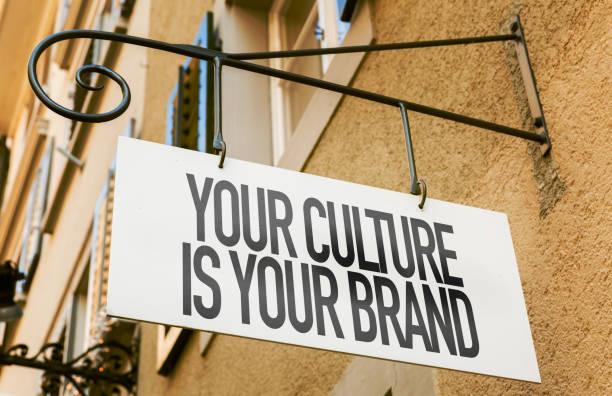The integration of religion and spirituality into daily life varies widely across cultures, influenced by historical, social, and geographical factors. Here’s an overview of how some cultures incorporate these elements:
1. Middle Eastern Cultures
- Islam: In many Middle Eastern countries, Islam is deeply intertwined with daily life. The five daily prayers (Salah) are a central practice, often announced by the call to prayer (Adhan) from mosques. During Ramadan, fasting from sunrise to sunset is a communal activity that influences daily schedules. Additionally, Islamic principles guide social behavior, business transactions, and even diet, with practices like eating halal.
2. South Asian Cultures
- Hinduism: In India, Hinduism plays a significant role in everyday life. Many homes have a small shrine where daily pujas (prayers) are performed. Festivals like Diwali, Holi, and Navratri are important spiritual events that blend religious rituals with community celebrations. The concept of karma, dharma (duty), and reincarnation influences ethical behavior and life decisions.
- Buddhism: In countries like Sri Lanka, Myanmar, and Thailand, Buddhism shapes daily practices through meditation, almsgiving, and temple visits. Monastic life is highly respected, and laypeople often participate in religious ceremonies or offer food to monks as a form of gaining merit.
3. East Asian Cultures
- Confucianism, Taoism, and Buddhism: In China, Japan, and Korea, spiritual life is often a blend of Confucian, Taoist, and Buddhist practices. Ancestral worship and respect for elders are Confucian values that permeate daily life, while Taoism influences practices like feng shui, traditional medicine, and a focus on harmony with nature. In Japan, Shinto rituals are also integrated into daily activities, particularly in practices like visiting shrines and celebrating seasonal festivals.
- Shinto: In Japan, Shinto practices are part of daily life, with rituals performed for purification, prosperity, and health. Many people visit Shinto shrines during significant life events like births, weddings, and New Year celebrations.
AfriPrime App link: FREE to download...
https://www.amazon.com/Africircle-AfriPrime/dp/B0D2M3F2JT
4. African Cultures
- Traditional African Religions: In many African societies, traditional beliefs and practices are deeply rooted in daily life. Ancestor worship, animism, and the belief in spirits play a significant role. Rituals and ceremonies are often performed to honor ancestors, seek protection, and ensure a good harvest. Even with the spread of Christianity and Islam, many communities blend these traditional beliefs with their religious practices.
- Christianity and Islam: In countries like Nigeria, Ethiopia, and South Africa, Christianity and Islam are major religions. Daily prayers, church or mosque attendance, and religious festivals are central to social life. In Ethiopia, for instance, the Ethiopian Orthodox Church has a significant influence on daily routines, with fasting, prayer, and church attendance being common practices.
5. Latin American Cultures
- Catholicism: In Latin America, Catholicism is deeply embedded in cultural practices. Daily prayers, attending Mass, and celebrating religious holidays like Easter and Christmas are common. The veneration of saints, particularly the Virgin Mary, is widespread, and many homes have altars with religious images. Religious festivals often involve processions, music, and communal gatherings.
- Indigenous Beliefs: In areas with significant indigenous populations, traditional spiritual practices are often integrated with Catholicism. Rituals honoring the earth (Pachamama), ancestors, and nature spirits are practiced alongside Christian sacraments.
6. Western Cultures
- Christianity: In Europe and North America, Christianity historically influenced many aspects of daily life, from moral values to holidays. While secularism has grown, many people still observe religious practices such as attending church on Sundays, saying grace before meals, or celebrating religious holidays. In more devout communities, daily prayer and Bible study remain important.
- Secular Spirituality: In some Western cultures, there is a growing trend of secular spirituality, where individuals may not follow organized religion but engage in practices like meditation, yoga, or mindfulness. This reflects a focus on personal well-being, ethics, and a connection with the self and the universe rather than traditional religious structures.
AfriPrime App link: FREE to download...
https://www.amazon.com/Africircle-AfriPrime/dp/B0D2M3F2JT
7. Indigenous Cultures
- Animism and Shamanism: In many indigenous cultures, spirituality is closely linked to nature and the environment. Daily life often involves rituals to honor spirits, ancestors, and natural elements like rivers, mountains, and animals. In cultures across the Americas, Australia, and parts of Asia, shamanic practices are common, with shamans playing a crucial role in healing, guidance, and spiritual communication.
8. Southeast Asian Cultures
- Buddhism, Islam, and Hinduism: In countries like Thailand, Indonesia, and Malaysia, religious practices are integrated into daily routines. For instance, in predominantly Buddhist Thailand, it is common for people to make offerings at temples, meditate, and participate in religious festivals. In Muslim-majority Indonesia, the daily call to prayer and fasting during Ramadan are key aspects of daily life. Hinduism in Bali involves daily offerings to deities and ancestors.
9. Oceania Cultures
- Indigenous Beliefs and Christianity: In many Pacific Island cultures, traditional spiritual beliefs are still practiced, often in conjunction with Christianity. Rituals may involve honoring the spirits of ancestors, celebrating the harvest, and maintaining harmony with nature. Christianity, introduced by missionaries, is also prevalent, with many communities attending church services and celebrating Christian holidays.
Each culture’s approach to integrating religion and spirituality into daily life is unique, reflecting a blend of historical traditions, religious teachings, and modern influences.
AfriPrime App link: FREE to download...


